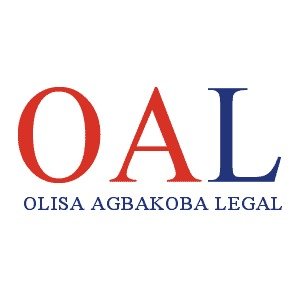Best Restructuring & Insolvency Lawyers in Apapa
Share your needs with us, get contacted by law firms.
Free. Takes 2 min.
List of the best lawyers in Apapa, Nigeria
About Restructuring & Insolvency Law in Apapa, Nigeria
Restructuring and insolvency law deals with the process of reorganizing or winding up businesses and managing situations where an individual or company is unable to pay their debts. Apapa, being one of Nigeria’s busiest commercial hubs and a critical port city in Lagos State, has a high concentration of shipping companies, logistics businesses, and manufacturers. The unique business environment in Apapa makes it essential for its organizations and individuals to understand the legal framework that governs financial distress, commercial debt recovery, creditor protection, and the resolution of insolvency.
In Nigeria, restructuring allows companies facing financial challenges to reorganize their operations, obligations, or structure with the aim of restoring viability and avoiding formal insolvency proceedings. Insolvency, on the other hand, is the legal process that deals with companies or individuals who are unable to meet their financial obligations. Laws and regulations have been enacted at both federal and state levels to provide mechanisms for resolving insolvency and promoting business recovery whenever possible.
Why You May Need a Lawyer
Seeking a lawyer specializing in restructuring and insolvency can be crucial for several reasons, especially in Apapa where commercial activities are intense and defaults or financial crises can have far-reaching consequences. Here are common scenarios where legal help might be necessary:
- When your business is unable to pay creditors as debts become due and you need structured advice on your legal options.
- If you are a creditor seeking to recover debts from a company or individual in financial difficulty.
- When facing foreclosure, asset seizure, or bankruptcy proceedings.
- In situations involving fraud, mismanagement, or director liabilities related to insolvency.
- During corporate restructuring, mergers, or acquisitions involving distressed assets or companies.
- If you are a shareholder, director, or employee concerned about rights and obligations during insolvency or restructuring processes.
- To ensure compliance with Nigerian insolvency laws, guidelines from the Corporate Affairs Commission, and relevant judicial decisions.
A lawyer can help you understand your rights, represent your interests in court or negotiation, and guide you through the entire restructuring or insolvency process to achieve the best possible outcome.
Local Laws Overview
The legal framework for restructuring and insolvency in Apapa, and Nigeria as a whole, has undergone significant changes in recent years. The key legislation is the Companies and Allied Matters Act (CAMA) 2020, which modernized insolvency procedures and strengthened creditor and debtor protections. Some important aspects include:
- Corporate Rescue Procedures: CAMA 2020 introduced provisions for company voluntary arrangements, administration, and restructuring plans to help viable companies bounce back from financial difficulty rather than proceeding directly to winding up.
- Winding Up: This refers to the process of liquidating an insolvent company. Liquidation can be by court order (compulsory winding up) or voluntarily decided by the company’s members or creditors.
- Receivership: Creditors may appoint a receiver or manager over a debtor’s assets as a means of debt recovery, especially in transactions secured by debentures or mortgages.
- Personal Insolvency: The Bankruptcy Act provides legal mechanisms for individuals who are unable to meet their debt obligations, including court-managed bankruptcy proceedings.
- Insolvency Tests: Nigerian law defines insolvency based on “cash flow tests” (inability to pay debts as they fall due) and “balance sheet tests” (liabilities exceeding assets).
- Role of Regulatory Bodies: The Corporate Affairs Commission (CAC) oversees company registration, compliance and filings, and plays a key role in the administration of company dissolution.
It is important to adhere to all requirements of federal and Lagos State regulations and, where applicable, align with guidelines under the Nigerian Financial Reporting Council for business disclosure.
Frequently Asked Questions
What is the difference between restructuring and insolvency?
Restructuring is a process where financially troubled businesses reorganize their structure or finances to become profitable again, often avoiding legal insolvency. Insolvency is the state where a person or business cannot pay their debts, and may lead to formal legal proceedings like liquidation or bankruptcy.
Can a company in Apapa avoid liquidation?
Yes. Nigerian law allows for company voluntary arrangements, administration, and debt restructuring to avoid liquidation if the business has a chance to recover and creditors agree to the arrangement.
What legal steps should be taken before declaring bankruptcy?
Before bankruptcy, it is advisable to engage a lawyer to assess your financial position, negotiate with creditors, explore restructuring options, and file required statements or notifications with relevant authorities like the CAC or courts.
How long does an insolvency process take in Nigeria?
The timeline varies depending on the complexity of the case, the type of insolvency proceeding involved, and the cooperation of all parties. It can take several months to a few years for complex liquidations or restructuring processes to conclude.
What happens to employees during company insolvency?
Employees are classified as preferential creditors and are entitled to certain claims for salary and entitlements during insolvency proceedings. However, full payment may depend on the value of the company’s remaining assets.
Can creditors take possession of assets in insolvency cases?
Secured creditors may have the right to appoint receivers and take possession of secured assets. Unsecured creditors must follow the legal process and may receive a share of recovered assets through court-supervised liquidation.
Is court intervention always required in restructuring or insolvency cases?
Not always. Out-of-court settlements, voluntary arrangements, and private negotiations are possible. However, formal insolvency or restructuring often requires court or CAC involvement to be legally binding.
Are there any penalties for directors in case of insolvency?
Yes. Directors can face penalties for wrongful trading, fraudulent trading, or failure to comply with directors' duties during insolvency. Personal liability may also arise in cases of misconduct or mismanagement.
What does liquidation mean for shareholders?
In most cases, shareholders only receive proceeds after all debts and preferential claims have been settled. If the company’s assets are insufficient, shareholders may not recover any funds.
How can a lawyer assist during company restructuring?
A lawyer provides advisory on available restructuring mechanisms, negotiates with stakeholders, ensures compliance with regulatory requirements, helps draft agreements, and represents parties in court or administrative proceedings.
Additional Resources
For those seeking help in restructuring and insolvency matters in Apapa, the following resources can be valuable:
- Corporate Affairs Commission (CAC): The main regulatory authority for company matters in Nigeria, including insolvency and winding up proceedings.
- Federal High Court of Nigeria: Handles insolvency litigation, company winding up applications, and bankruptcy cases.
- Lagos State Judiciary: Offers support for matters involving enforcement of creditors rights, debt recovery, and dispute resolution.
- The Nigerian Bar Association (Lagos Branch): Provides a directory of qualified lawyers specializing in restructuring and insolvency law.
- Nigerian Financial Reporting Council: Issues compliance guidelines for business disclosure and reporting during insolvency.
- Insolvency Practitioners Association of Nigeria: Offers professional support and resources for both creditors and debtors navigating restructuring or insolvency situations.
Next Steps
If you or your business require legal assistance with restructuring or insolvency in Apapa, consider the following actions:
- Gather and organize your financial records, contracts, and communication with creditors or debtors.
- Consult with a lawyer who has experience in restructuring and insolvency law specific to your industry and location.
- Discuss your legal rights, available options, and potential risks to make an informed decision about restructuring, debt settlements, or formal insolvency proceedings.
- Stay proactive by responding to legal notices and complying with regulatory requirements to avoid personal or corporate liabilities.
- Attend meetings, mediations, or court hearings as needed, either personally or through legal representation.
Early intervention and sound legal counsel can make a significant difference in managing financial challenges and preserving your business or personal interests in Apapa, Nigeria.
Lawzana helps you find the best lawyers and law firms in Apapa through a curated and pre-screened list of qualified legal professionals. Our platform offers rankings and detailed profiles of attorneys and law firms, allowing you to compare based on practice areas, including Restructuring & Insolvency, experience, and client feedback.
Each profile includes a description of the firm's areas of practice, client reviews, team members and partners, year of establishment, spoken languages, office locations, contact information, social media presence, and any published articles or resources. Most firms on our platform speak English and are experienced in both local and international legal matters.
Get a quote from top-rated law firms in Apapa, Nigeria — quickly, securely, and without unnecessary hassle.
Disclaimer:
The information provided on this page is for general informational purposes only and does not constitute legal advice. While we strive to ensure the accuracy and relevance of the content, legal information may change over time, and interpretations of the law can vary. You should always consult with a qualified legal professional for advice specific to your situation.
We disclaim all liability for actions taken or not taken based on the content of this page. If you believe any information is incorrect or outdated, please contact us, and we will review and update it where appropriate.










